Housing more than 2,000 precious collections, the museum is a story gallery of the Ancient Tea and Horse Road in Diqing. 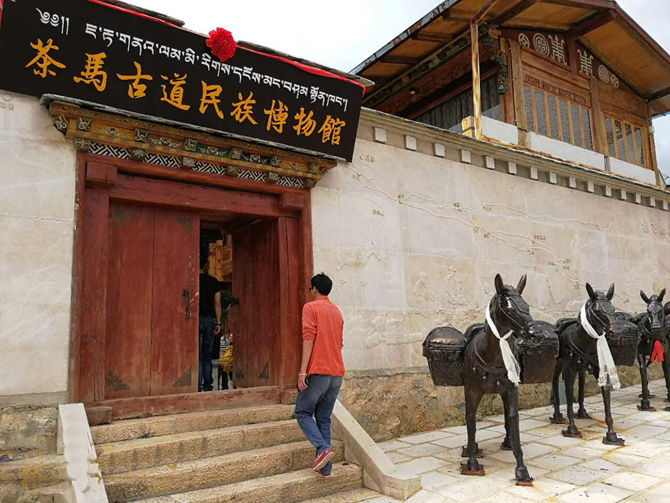
“We set up the museum in the hope of carrying forward and inheriting our ethnic cultures,” said Drolma at the Shangri-La Ancient Tea and Horse Road Museum on August 14th. The collections of the museum were all left by Drolma’s family. In front of the entrance are a few sculptures of horses carrying goods, representing the caravans of the old times. In the bells around the necks of the horses, prayers are engraved such as “good weather for crops”. 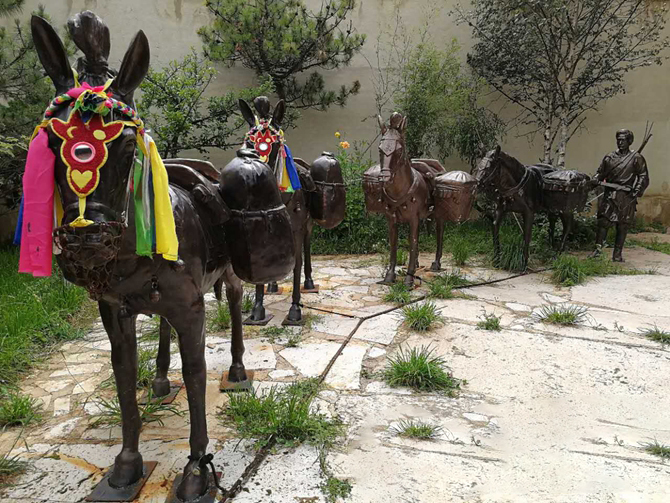
Into the museum, there is a courtyard where history of the Tea and Horse Road are introduced to tourists. At the entrance hall hung some old utensils used by the old caravans, including wooden boxes, leather bags, bells, etc. The 2,000 pieces of collections, from the small ones such as tea mugs and needles, to larger ones like saddles, blankets, wooden boxes inlaid with gold, and flasks made of animal bones, all tell stories of the caravans of the ancient times. 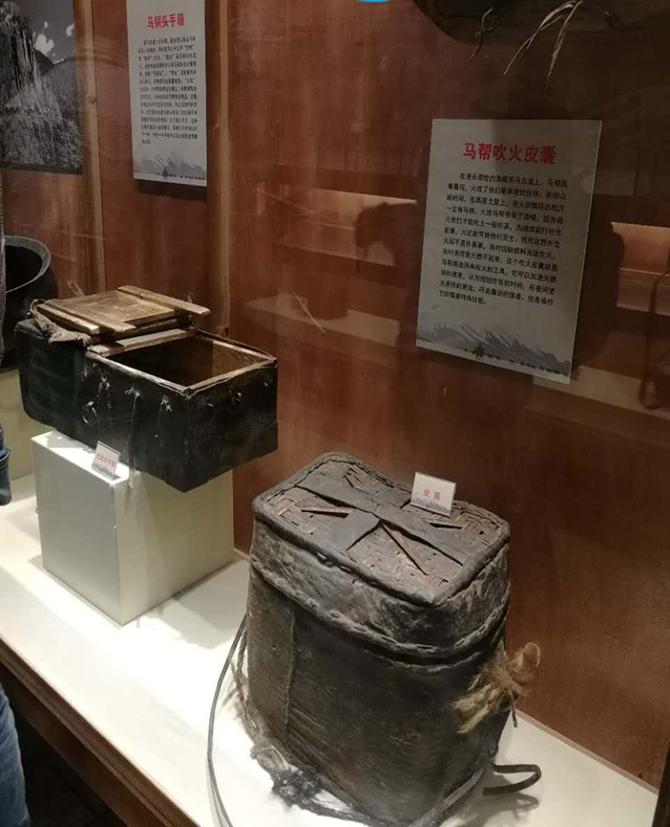
According to Drolma, the museum, privately funded by two brothers from her family in Little Zhongdian Township, was officially opened on July 2, 2017. It is the first village museum named after the Tea and Horse Road in Diqing Tibetan Autonomous Prefecture. 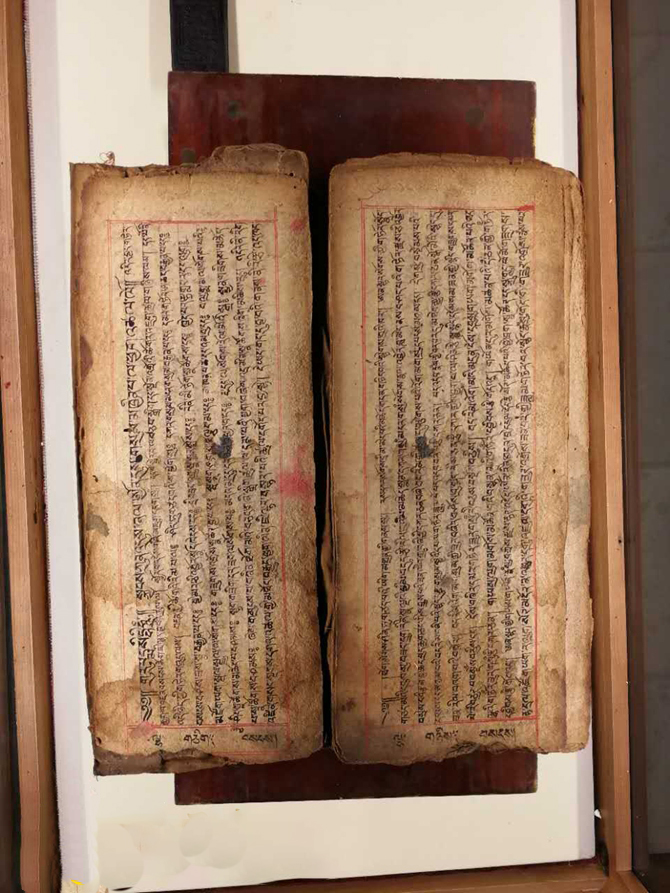
The two brothers had spent more than 10 years collecting these precious relics left along the route, in the hope of tracing the history of the tea and horse caravan road, as well as the rise and fall of their ancestors on the horseback. 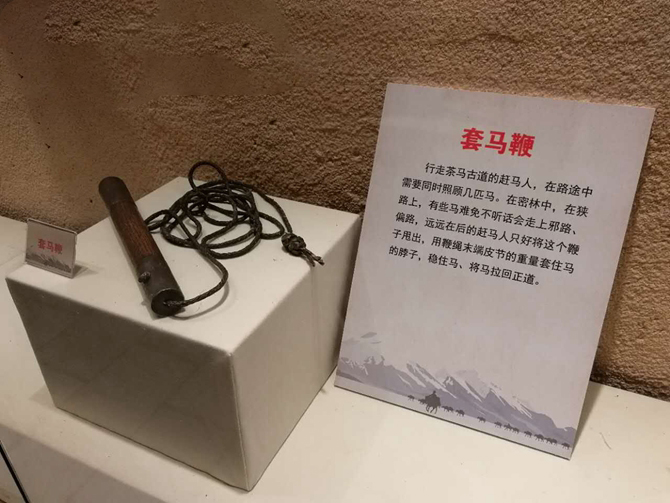
“It had been quite a dream of our family to build such a museum. Now the dream came true and we will continue to carry forward with it so as to pass down the tradition to our future generations,” said Drolma. 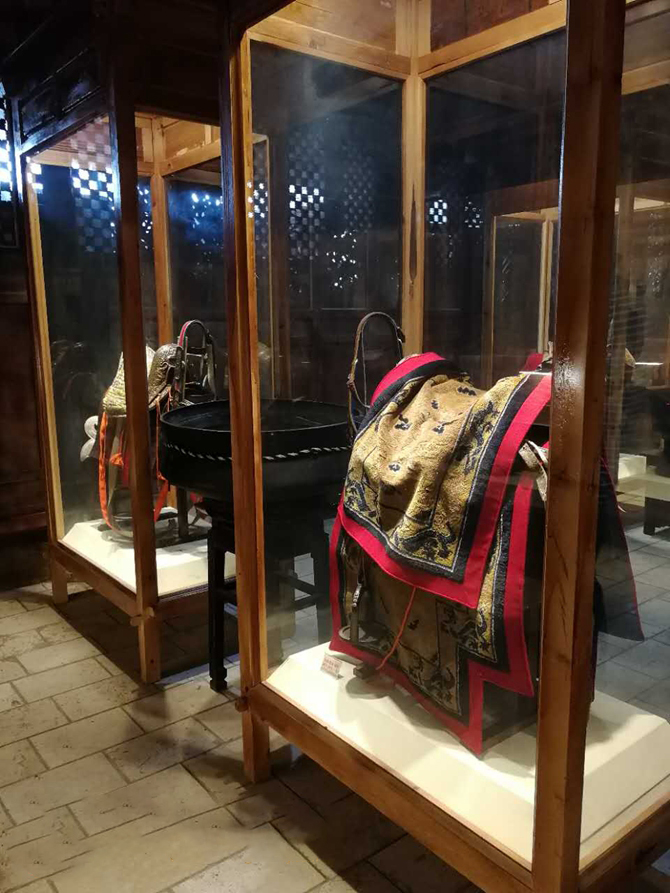
Currently, the Shangri-La Ancient Tea and Horse Museum is not only a new platform for the display of ancient folk cultural relics, but also an important carrier for the protection and promotion of outstanding traditional cultures. 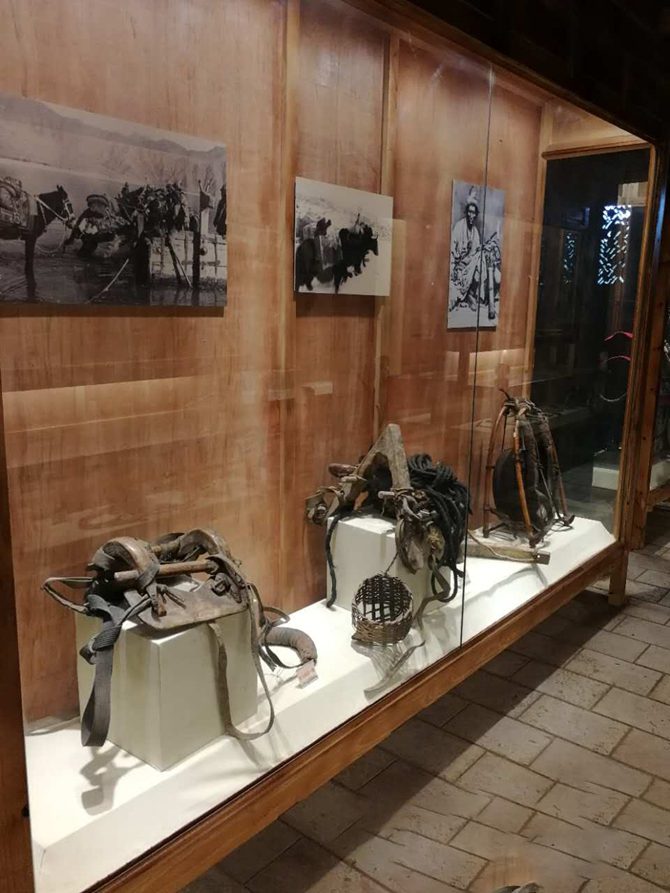
Editor: Wang Shixue |












7740f3b5-9ecb-438e-9052-76cb2d4bb671.jpg)

